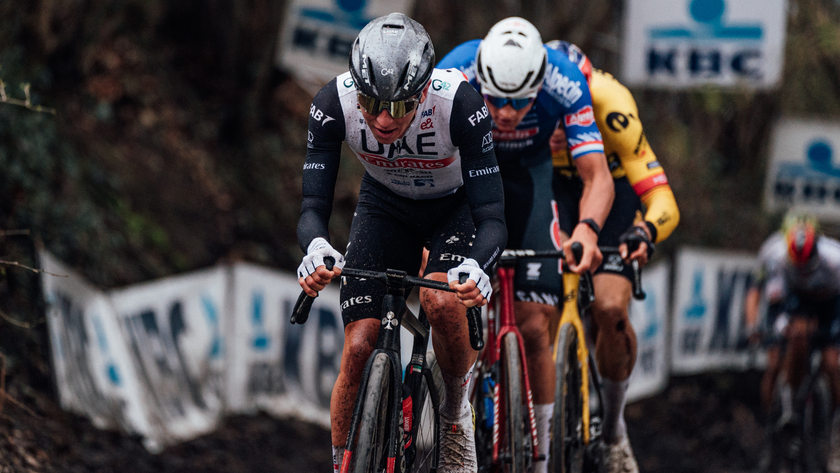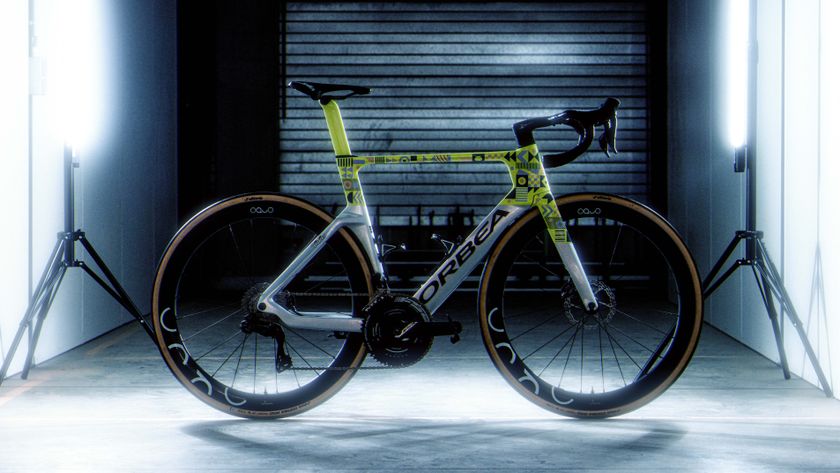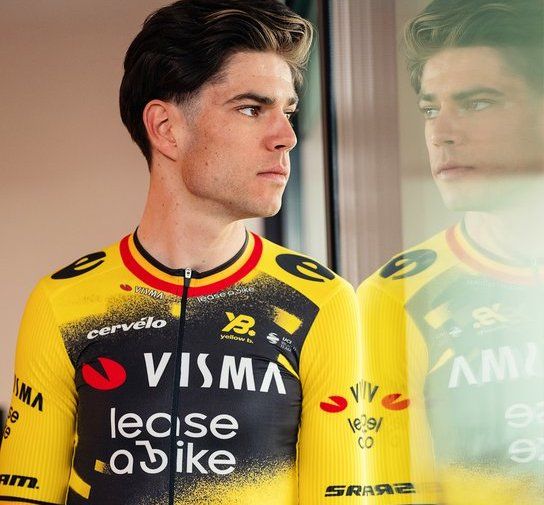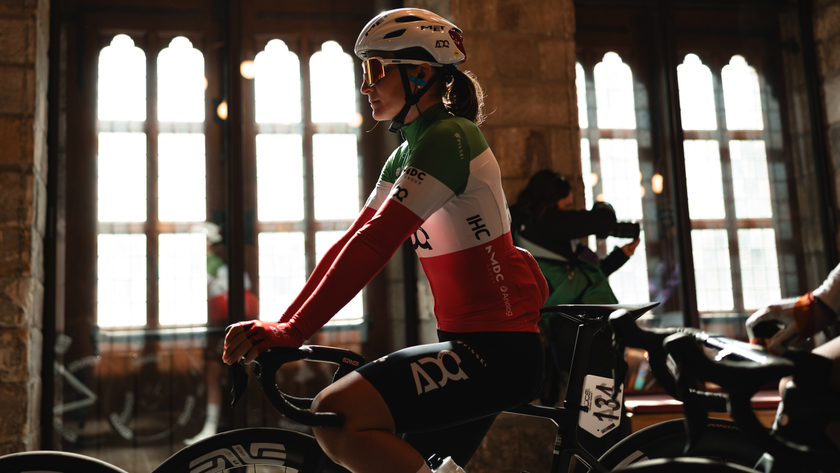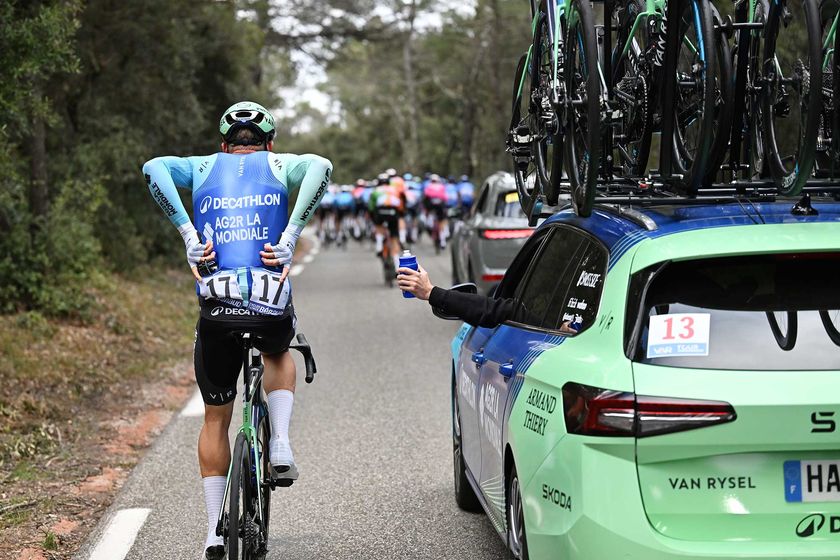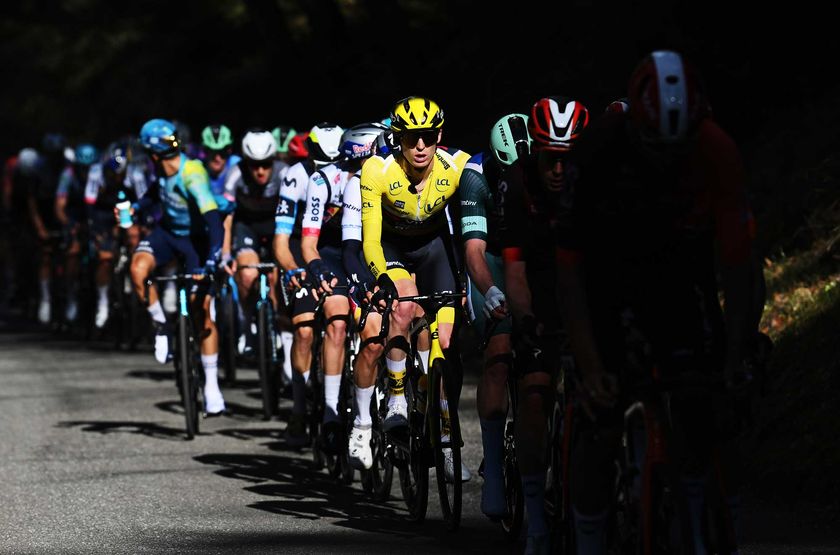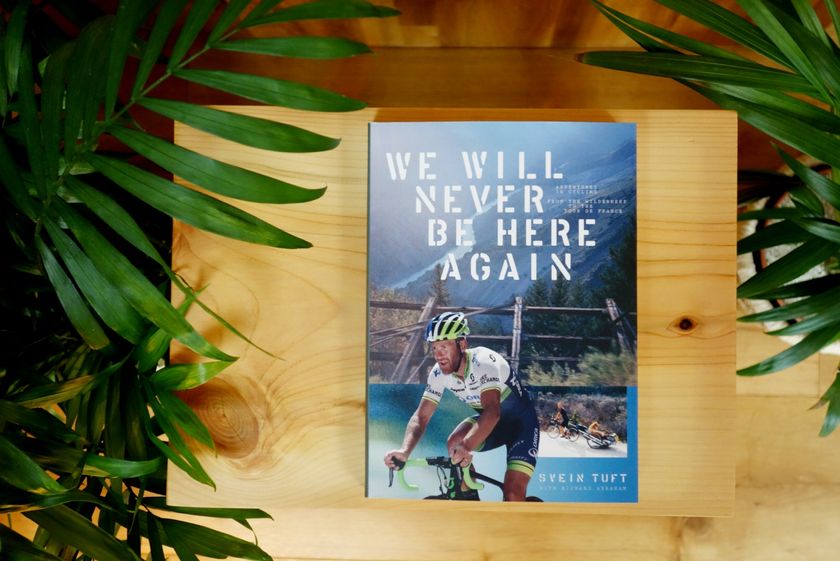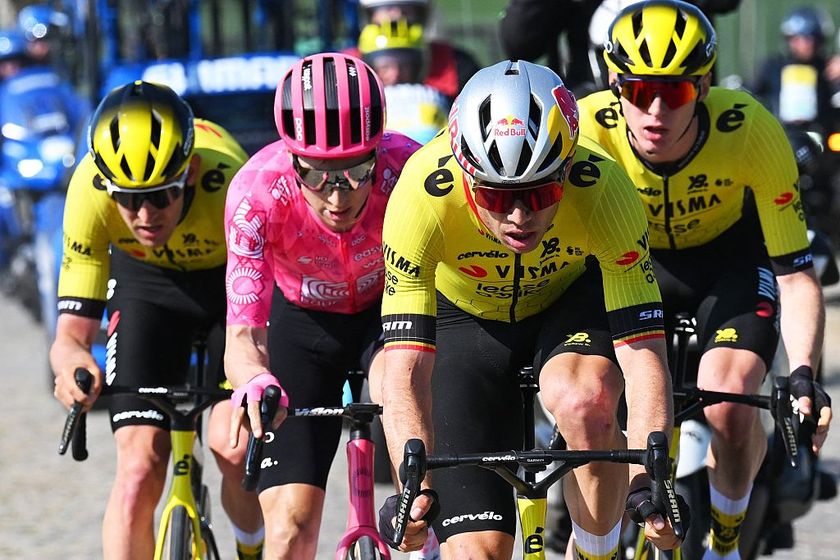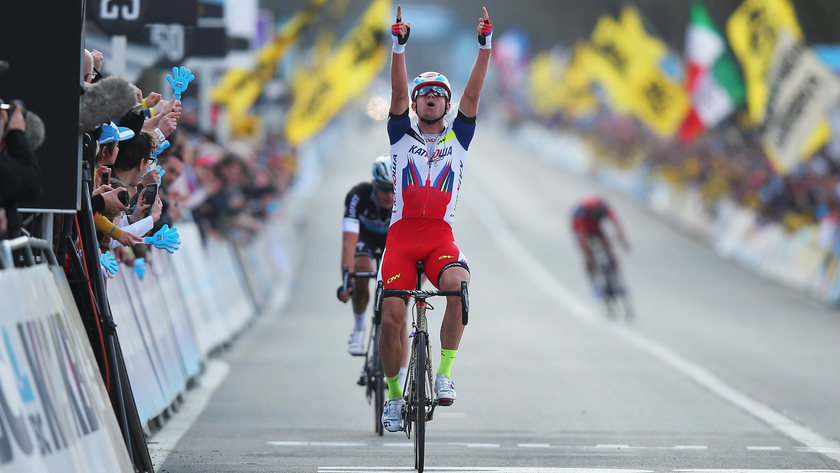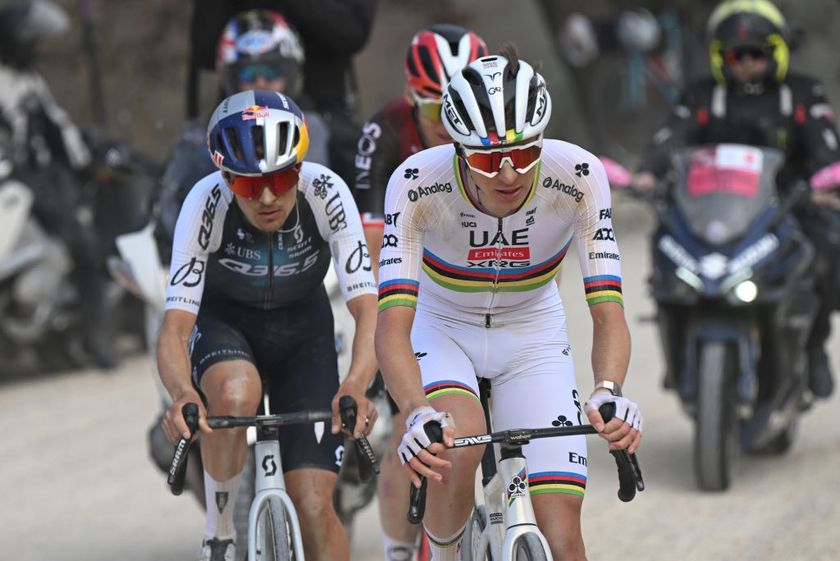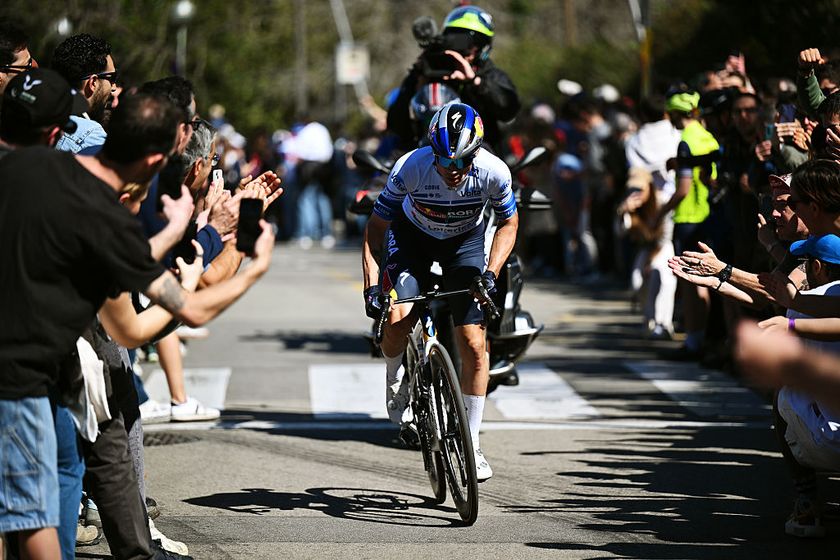Fitness questions and answers for September 11, 2007
Got a question about fitness, training, recovery from injury or a related subject? Drop us a line at...
Form & Fitness Q & A
Got a question about fitness, training, recovery from injury or a related subject? Drop us a line at fitness@cyclingnews.com. Please include as much information about yourself as possible, including your age, sex, and type of racing or riding. Due to the volume of questions we receive, we regret that we are unable to answer them all.
Carrie Cheadle, MA (www.carriecheadle.com) is a Sports Psychology consultant who has dedicated her career to helping athletes of all ages and abilities perform to their potential. Carrie specialises in working with cyclists, in disciplines ranging from track racing to mountain biking. She holds a bachelors degree in Psychology from Sonoma State University as well as a masters degree in Sport Psychology from John F. Kennedy University.
Jon Heidemann (www.peaktopeaktraining.com) is a USAC Elite Certified cycling coach with a BA in Health Sciences from the University of Wyoming. The 2001 Masters National Road Champion has competed at the Elite level nationally and internationally for over 14 years. As co-owner of Peak to Peak Training Systems, Jon has helped athletes of all ages earn over 84 podium medals at National & World Championship events during the past 8 years.
Dave Palese (www.davepalese.com) is a USA Cycling licensed coach and masters' class road racer with 16 years' race experience. He coaches racers and riders of all abilities from his home in southern Maine, USA, where he lives with his wife Sheryl, daughter Molly, and two cats, Miranda and Mu-Mu.
Kelby Bethards, MD received a Bachelor of Science in Electrical Engineering from Iowa State University (1994) before obtaining an M.D. from the University of Iowa College of Medicine in 2000. Has been a racing cyclist 'on and off' for 20 years, and when time allows, he races Cat 3 and 35+. He is a team physician for two local Ft Collins, CO, teams, and currently works Family Practice in multiple settings: rural, urgent care, inpatient and the like.
Fiona Lockhart (www.trainright.com) is a USA Cycling Expert Coach, and holds certifications from USA Weightlifting (Sports Performance Coach), the National Strength and Conditioning Association (Certified Strength and Conditioning Coach), and the National Academy for Sports Nutrition (Primary Sports Nutritionist). She is the Sports Science Editor for Carmichael Training Systems, and has been working in the strength and conditioning and endurance sports fields for over 10 years; she's also a competitive mountain biker.
Eddie Monnier (www.velo-fit.com) is a USA Cycling certified Elite Coach and a Category II racer. He holds undergraduate degrees in anthropology (with departmental honors) and philosophy from Emory University and an MBA from The Wharton School of Business.
Get The Leadout Newsletter
The latest race content, interviews, features, reviews and expert buying guides, direct to your inbox!
Eddie is a proponent of training with power. He coaches cyclists (track, road and mountain bike) of all abilities and with wide ranging goals (with and without power meters). He uses internet tools to coach riders from any geography.
David Fleckenstein, MPT (www.physiopt.com) is a physical therapist practicing in Boise, ID. His clients have included World and U.S. champions, Olympic athletes and numerous professional athletes. He received his B.S. in Biology/Genetics from Penn State and his Master's degree in Physical Therapy from Emory University. He specializes in manual medicine treatment and specific retraining of spine and joint stabilization musculature. He is a former Cat I road racer and Expert mountain biker.
Since 1986 Steve Hogg (www.cyclefitcentre.com) has owned and operated Pedal Pushers, a cycle shop specialising in rider positioning and custom bicycles. In that time he has positioned riders from all cycling disciplines and of all levels of ability with every concievable cycling problem. Clients range from recreational riders and riders with disabilities to World and National champions.
Current riders that Steve has positioned include Davitamon-Lotto's Nick Gates, Discovery's Hayden Roulston, National Road Series champion, Jessica Ridder and National and State Time Trial champion, Peter Milostic.
Pamela Hinton has a bachelor's degree in Molecular Biology and a doctoral degree in Nutritional Sciences, both from the University of Wisconsin-Madison. She did postdoctoral training at Cornell University and is now an assistant professor of Nutritional Sciences at the University of Missouri-Columbia where she studies the effects of iron deficiency on adaptations to endurance training and the consequences of exercise-associated changes in menstrual function on bone health.
Pam was an All-American in track while at the UW. She started cycling competitively in 2003 and is the defending Missouri State Road Champion. Pam writes a nutrition column for Giana Roberge's Team Speed Queen Newsletter.
Dario Fredrick (www.wholeathlete.com) is an exercise physiologist and head coach for Whole Athlete™. He is a former category 1 & semi-pro MTB racer. Dario holds a masters degree in exercise science and a bachelors in sport psychology.
Scott Saifer (www.wenzelcoaching.com) has a Masters Degree in exercise physiology and sports psychology and has personally coached over 300 athletes of all levels in his 10 years of coaching with Wenzel Coaching.
Kendra Wenzel (www.wenzelcoaching.com) is a head coach with Wenzel Coaching with 17 years of racing and coaching experience and is coauthor of the book Bike Racing 101.
Steve Owens (www.coloradopremiertraining.com) is a USA Cycling certified coach, exercise physiologist and owner of Colorado Premier Training. Steve has worked with both the United States Olympic Committee and Guatemalan Olympic Committee as an Exercise Physiologist. He holds a B.S. in Exercise & Sports Science and currently works with multiple national champions, professionals and World Cup level cyclists.
Through his highly customized online training format, Steve and his handpicked team of coaches at Colorado Premier Training work with cyclists and multisport athletes around the world.
Brett Aitken (www.cycle2max.com) is a Sydney Olympic gold medalist. Born in Adelaide, Australia in 1971, Brett got into cycling through the cult sport of cycle speedway before crossing over into road and track racing. Since winning Olympic gold in the Madison with Scott McGrory, Brett has been working on his coaching business and his www.cycle2max.com website.
Richard Stern (www.cyclecoach.com) is Head Coach of Richard Stern Training, a Level 3 Coach with the Association of British Cycling Coaches, a Sports Scientist, and a writer. He has been professionally coaching cyclists and triathletes since 1998 at all levels from professional to recreational. He is a leading expert in coaching with power output and all power meters. Richard has been a competitive cyclist for 20 years
Andy Bloomer (www.cyclecoach.com) is an Associate Coach and sport scientist with Richard Stern Training. He is a member of the Association of British Cycling Coaches (ABCC) and a member of the British Association of Sport and Exercise Sciences (BASES). In his role as Exercise Physiologist at Staffordshire University Sports Performance Centre, he has conducted physiological testing and offered training and coaching advice to athletes from all sports for the past 4 years. Andy has been a competitive cyclist for many years.
Michael Smartt (www.wholeathlete.com) is an Associate Coach with Whole Athlete™. He holds a Masters degree in exercise physiology, is a USA Cycling Level I (Elite) Coach and is certified by the NSCA (Certified Strength and Conditioning Specialist). Michael has more than 10 years competitive experience, primarily on the road, but also in cross and mountain biking. He is currently focused on coaching road cyclists from Jr. to elite levels, but also advises triathletes and Paralympians. Michael is a strong advocate of training with power and has over 5 years experience with the use and analysis of power meters. Michael also spent the 2007 season as the Team Coach for the Value Act Capital Women's Cycling Team.
Advice presented in Cyclingnews' fitness pages is provided for educational purposes only and is not intended to be specific advice for individual athletes. If you follow the educational information found on Cyclingnews, you do so at your own risk. You should consult with your physician before beginning any exercise program.
Saddle height: the higher the better for climbing?
Losing weight to climb better
Recovering from Mono
Integrated seat pins and effects on position
Wedges and knee-in pedalling, and do offset cleats = offset seat?
Cycling and Long-term Exposure to Second Hand Cigarette Smoke
Saddle height: the higher the better for climbing?
My friends are ridiculous. One especially so. Elden (a.k.a. The Fat Cyclist) swears that having his mountain bike saddle way up high in the sky is better for climbing and endurance rides. He has no bend in his knee at the bottom of the pedal stroke, but swears he feels perfectly comfortable and powerful. I must admit that Elden climbs like a scalded cat. However, as a consequence of his saddle height, Elden descends like a bowling ball, by which I do not mean he descends quickly, but rather he descends by often rolling end over end. I've tried to get him to lower his saddle, but even if he lowers it for a given ride, the next time I see him his seatpost looks like a flagpole. Please help me save Elden's soon-to-be surgically repaired shoulder.
My question: If a rider has their saddle at a "correct" height (as determined by whatever system one cares to use) is there any physiological/biomechanical advantage to raising the saddle above that "correct" level if the rider is doing a lot of climbing or an especially long ride?
Dan Richardson
American Fork, Utah
Scott Safier replies:
There is an optimal saddle-height for seated, moderate cadence pedalling power. Putting the saddle higher than the optimum won't increase power of course. That's the definition of optimum. That height also rarely induces knee extension to a zero-degree knee-bend. If Elden can actually pedal smoothly through the bottom of the pedal stroke though, he's not too far off.
Losing weight to climb better
I've been reading your column and I love it. So I thought I'd write in with my question. I just upgraded to Cat 3 and I'm finishing up my first full season of bike racing. I am more of a sprinter and currently weight just under 190lbs, and I'm 6' tall. I could keep up on steep, long climbs in Cat 4, but in the higher categories, I can't just power over them and expect to keep up with the little guys. I don't want to be strictly a sprinter, and that means I need to lose weight. My goal is to drop serious weight in the off-season. Maybe 20lbs. Is that wise? What is the most amount of weight one can lose in the off-season? And is there any kind of nutritional information or otherwise that will allow me to keep building muscle while losing weight?
RA
New York, NY
Michael Smartt replies:
Firstly, congrats on the upgrade.
Recovering from Mono
I'm a 33-year-old female road cyclist (Cat 2) who was looking forward to a successful year of racing on the NRC circuit. After three very disappointing months of racing - including missing the time cut at the first crit in Nature Valley! - I was diagnosed with mono. The diagnosis came in early August and, judging from the time of my initial symptoms (very swollen lymph nodes in the back of my neck, constant sore & scratchy throat, and tired muscles), I've been sick since late April. Since the diagnosis, I competed in a few races to help my team, but my season is now over.
I'm now doing some easy running and cycling to stay fit, but I'm constantly tired and still have a swollen neck. Can you point me towards any resources on elite athletes and recovering from mono? My parents (both doctors) and my physician said it would be okay for me to remain active but there's not much information about whether I'm prolonging my illness by doing easy runs & rides. The prospect of doing no exercise worries me (I've worked so hard to get here!), but, if it's the only way to recover, I'm willing to do it. I just don't know how long I need to take off - and, when I start back up again, how much I can do. I know mono affects everyone differently (and I'm lucky that I was able to race at all!), but I'd love some general guidelines.
Any help you can provide would be greatly appreciated - I've been surfing the web looking for information, but haven't come up with much.
Dana Robertson Halter
Kelby Bethards replies:
Your question is certainly one that doesn't have a simple answer. I don't think you've found any guidelines about mono and the recovering athlete because there are few out there. And, most studies have been done with mono and splenomegaly.
Integrated seat pins and effects on position
Basically I ride with the nose of my saddle pointing slightly off to the left. This allows both my inner thighs to brush past the saddle nose evenly.
If I set the saddle up dead straight, inline with the top tube, it rubs on my right inner thigh and is quite annoying.
If I were to go to a frame with an integrated seat post, such as a new Trek Madone, where the saddle is directly inline with the bike, it would be straightening my pelvis, rather than allowing me to indulge it in the slight twist that I currently have.
Do you think I would eventually straighten out on the bike, or could it cause me an injury as the bike would be forcing me to 'line up' in what currently feels a quite unnatural position?
Or would I continue to pedal with the slight twist and simply wear my shorts out quicker on the right leg?
Matt
Steve Hogg replies:
The simple answer is this. Straighten your seat and ride for a long enough period to determine whether this is an improvement, or at worst not a negative step for you. If so, buy the Madone if that is what you are looking to do.
Wedges and knee-in pedalling, and do offset cleats = offset seat?
Firstly, this is quite a resource, especially regarding fit issues. Thanks, Steve.
I have two specific curiosities regarding fit. If one does indeed have a forefoot varus but also has a pronounced knee-in pedalling style (say, occasionally brushing the top tube), could wedges not be needed? What might the symptoms be of too much varus correction with wedges?
The other question concerns the use of an offset seat to achieve pelvis stability and symmetry. If only a bit of offset is needed, could having one cleat all the way to the outside and the other all the way to the inside accomplish the same thing?
Joel
Steve Hogg replies:
Often an uncompensated for forefoot varus will lead to a knee in pedalling style as a self protection measure.
Cycling and Long-term Exposure to Second Hand Cigarette Smoke
I am a 35-year-old male cyclist who rode for seven years between the ages of 15 and 23. I spent three of those years racing road and mountain bikes, and the others doing training rides and group rides. Unfortunately, I am also the child of chain-smoking parents, and in particular after my father’s death when I was 16, the child of a chain-smoking mother. Being subject to overwhelming second-hand cigarette smoke my whole life led to the demise of my cycling career; I was dropped and pulled from many races because I could barely breathe when the pace picked up, my lungs and chest searing in pain and my breathing laboured, uncontrollable, and painful.
After being out of cycling for twelve years, I decided to give the sport another go at 33 years of age. I purchased a cyclocross bike, in part to have a multipurpose play bike and also to explore a fascination I’ve always had with ‘cross. The more I got into it, the more I considered racing ‘cross. While I ride a few times a week on my road bike at a good pace for longer periods (I pull sub-six hour centuries on a singlespeed road bike with 42/17 freewheel gearing), when I try practising ‘cross, the searing pain in my lungs, the burning in my chest, and the anguished breathing returns. I can only make it through about 10-15 minutes of run-ups, dismounts, sand traps, road-sprints, and all of the other variances of ‘cross before I have to stop because the pain is too much. I even attending a ‘cross racing clinic, but I was winded after about five-minutes of riding and run-ups. I’m afraid it’s all futile and see myself trying a ‘cross race only to abandon after a few laps.
Are my lungs too damaged by a lifetime of second-hand smoke for me to consider ever being a competitive cyclist, especially at ‘cross? Could it just be a lack of serious interval training? Can they be salvaged and trained back into athletically fit lungs, or should I just accept that I have two bags of charcoal for lungs now with the oxygen capacity of a small zip-loc bag and resign myself to recreational riding only?
Thank You.
Jason Pearlman
Silver Spring, Maryland
Scott Safier replies:
I'll assume you moved out of your parents house many years ago and are no longer living with or being exposed to much second-hand smoke. I've had a few ex-smokers for clients. Generally by about five years post-smoking they are as strong and capable aerobically as people who did not smoke. One even turned pro for a short time roughly ten years after he stopped smoking.
